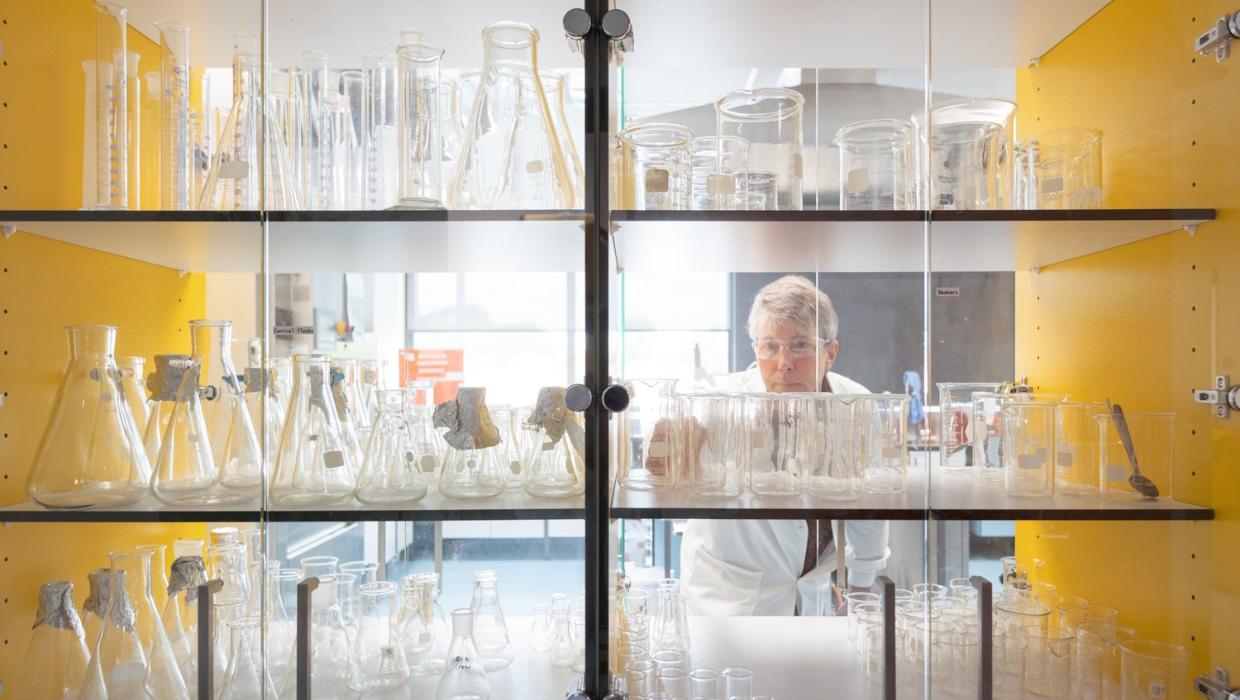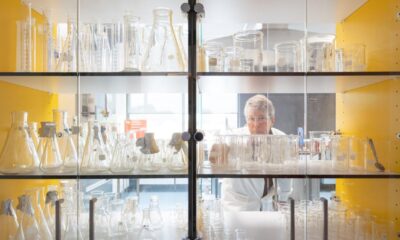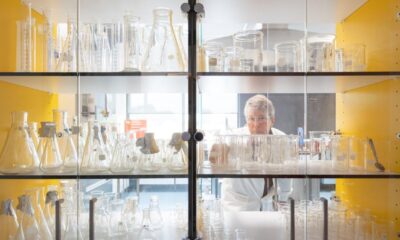Science
New Zealand Secures $20 Million for Innovative Bioeconomy Research

The Bioeconomy Science Institute, which integrates several leading research organizations including AgResearch, Manaaki Whenua – Landcare Research, Plant & Food Research, and Scion, has secured over $20 million in funding from the Endeavour Fund for two significant research initiatives aimed at transforming New Zealand’s food, biotechnology, and horticultural sectors.
Groundbreaking Research Initiatives
The first initiative, titled “Super-Storing: Extending the Life of NZ’s Perishable Fruits,” has received $10.2 million in funding. Spearheaded by Associate Professor Robert Schaffer and Dr. Rosie Schröder, this program focuses on enhancing the storage life of fast-perishing fruits, such as summer fruits and berries, by employing advanced genetic technologies. The aim is to replicate the long storage capabilities of kiwifruit, thus enabling these fruits to be shipped via sea to distant markets in Asia and Europe.
This innovation is crucial as New Zealand’s fresh fruit exports currently generate approximately $3.5 billion annually, predominantly from kiwifruit and apples. The research supports the Government’s ambitious goal of increasing the export value from $7 billion to $12 billion per year. By improving the storage and transport of these perishable goods, the initiative is expected to generate over $600 million in additional domestic economic activity while significantly reducing food waste and lowering emissions by replacing air freight with sea freight.
“This work will directly benefit growers, extend harvest windows, and build resilience against extreme weather,” stated Schaffer. “It’s about unlocking the full potential of New Zealand’s horticultural diversity.”
The second program, “Turning Pine Waste into Premium Proteins,” involves a five-year initiative with funding of $10.4 million. Led by Dr. David Hooks and Dr. Scott Knowles, this project aims to utilize Precision Fermentation (PF) to convert pine forestry residues, which are often discarded or burned, into high-value proteins. By employing novel chemoenzymatic methods, the initiative will create fermentation feedstocks that will be used to cultivate engineered yeast strains capable of producing specialty proteins, such as osteopontin and casozepine. These proteins mimic the nutritional and functional benefits of traditional animal-derived ingredients.
“This is more than a research program,” Dr. Hooks emphasized. “It’s a blueprint for how New Zealand can lead in the next generation of food and biotech innovation. This is about creating value from what we already have. New Zealand has abundant bioresources and world-class science. Precision Fermentation allows us to connect the two.”
Dr. Knowles added that by converting forestry residues into feedstocks, the program opens a new pathway for sustainable protein production, aligning with global efforts to establish climate-resilient food systems. Researchers anticipate several innovations from this initiative, including the development of novel enzymes to convert lignocellulosic biomass into fermentable sugars and digital twin modeling to optimize PF processes.
Future of Bioeconomy in New Zealand
The establishment of the Bioeconomy Science Institute was part of a broader governmental strategy announced earlier this year, which aims to streamline New Zealand’s seven Crown Research Institutes into four new Public Research Organizations. This restructuring is designed to maximize the impact of scientific research on the country’s economy and environment.
During a recent visit to the Lincoln campus, Minister of Science, Innovation and Technology, Hon Shane Reti, unveiled the new identity of the Bioeconomy Science Institute. “This is an exciting step in sharing our new organization with the outside world,” said Transition Chief Executive Mark Piper. “As we start our journey as the Bioeconomy Science Institute, it’s great to share this new visual identity that speaks to the organization we are building for the benefit of Aotearoa New Zealand and the world.”
In addition to the funding announcement, Minister Reti disclosed $6.5 million in new industry funding aimed at developing methods to reduce methane emissions from grazing livestock. He also witnessed the signing of a licensing agreement with Nelson-based Seaweave to commercialize aquaculture monitoring technology.
The Bioeconomy Science Institute’s initiatives represent a significant step forward for New Zealand’s agricultural and biotechnological landscape, paving the way for innovations that promise not only economic benefits but also advancements in sustainability and environmental responsibility.
-

 Sports2 months ago
Sports2 months agoNetball New Zealand Stands Down Dame Noeline Taurua for Series
-

 Entertainment2 months ago
Entertainment2 months agoTributes Pour In for Lachlan Rofe, Reality Star, Dead at 47
-

 Entertainment4 weeks ago
Entertainment4 weeks agoNew ‘Maverick’ Chaser Joins Beat the Chasers Season Finale
-

 Sports2 months ago
Sports2 months agoSilver Ferns Legend Laura Langman Criticizes Team’s Attitude
-

 Sports3 days ago
Sports3 days agoEli Katoa Rushed to Hospital After Sideline Incident During Match
-

 Politics1 month ago
Politics1 month agoNetball NZ Calls for Respect Amid Dame Taurua’s Standoff
-

 Entertainment2 months ago
Entertainment2 months agoKhloe Kardashian Embraces Innovative Stem Cell Therapy in Mexico
-

 World3 months ago
World3 months agoPolice Arrest Multiple Individuals During Funeral for Zain Taikato-Fox
-

 Sports3 months ago
Sports3 months agoGaël Monfils Set to Defend ASB Classic Title in January 2026
-

 Entertainment1 month ago
Entertainment1 month agoTyson Fury’s Daughter Venezuela Gets Engaged at Birthday Bash
-

 Sports1 month ago
Sports1 month agoHeather McMahan Steps Down as Ryder Cup Host After Controversy
-

 World2 weeks ago
World2 weeks agoSevere Winds Hit New Zealand, Over 100 Flights Canceled


















